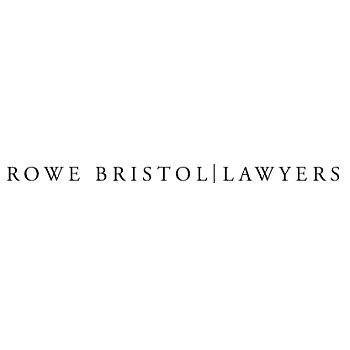Best Bankruptcy Lawyers in Perth
Share your needs with us, get contacted by law firms.
Free. Takes 2 min.
List of the best lawyers in Perth, Australia
About Bankruptcy Law in Perth, Australia
Bankruptcy in Perth, Australia is a legal process where you're declared unable to pay your debts. It can free you from most debts, provide relief and allow a new start. However, it is a serious step with potential future implications such as credit rating impact and restrictions on overseas travels. Bankruptcy in Australia is administrated by the Australian Financial Security Authority (AFSA).
Why You May Need a Lawyer
People who are overwhelmed by debt, creditors pursuing payment, or those considering initiating bankruptcy proceedings themselves often need legal help. A lawyer can provide advice on alternatives to bankruptcy, walk you through the legal process, help you understand the legal and financial consequences of bankruptcy, and act in your best interests when dealing with creditors and the AFSA.
Local Laws Overview
Bankruptcy laws in Perth follow the national Bankruptcy Act 1966. Key aspects include that bankruptcy typically lasts for three years and one day, but can be extended. Some debts, like court fines and student loans, aren’t cleared by bankruptcy. You can earn income during bankruptcy, but higher income earners may need to pay contributions. A trustee is appointed to manage the bankruptcy and may sell certain assets to help repay creditors.
Frequently Asked Questions
1. Can I automatically discharge from bankruptcy?
Yes, most people automatically discharge from bankruptcy three years and one day after it was declared. However, the bankruptcy trustee can object to a discharge under certain conditions.
2. Will bankruptcy affect my employment?
Bankruptcy may affect your employment depending on the terms of your employment contract or the specific regulations of your industry.
3. Can I travel overseas while bankrupt?
Yes, but you need to request permission from your bankruptcy trustee. The trustee will decide based on individual circumstances.
4. What assets can I keep in a bankruptcy?
Most ordinary household items, tools of trade up to a certain value, most life insurance policies, and most compensation for personal injury are safe in a bankruptcy.
5. What happens to my debts when I’m declared bankrupt?
Most unsecured debts are covered by a bankruptcy. That means you will no longer have to repay them. Some debts like court fines and student loans are not covered.
Additional Resources
The Australian Financial Security Authority (AFSA) provides a wealth of information about bankruptcy. Also consider reaching out to institutions that provide free legal advice such as Legal Aid WA or a financial counsellor.
Next Steps
If you need legal assistance with bankruptcy, consider seeking legal advice from a lawyer who specializes in bankruptcy. Ensure to understand the costs and benefits before making a decision. If you decide to proceed, your lawyer will help you navigate the bankruptcy process.
Lawzana helps you find the best lawyers and law firms in Perth through a curated and pre-screened list of qualified legal professionals. Our platform offers rankings and detailed profiles of attorneys and law firms, allowing you to compare based on practice areas, including Bankruptcy, experience, and client feedback.
Each profile includes a description of the firm's areas of practice, client reviews, team members and partners, year of establishment, spoken languages, office locations, contact information, social media presence, and any published articles or resources. Most firms on our platform speak English and are experienced in both local and international legal matters.
Get a quote from top-rated law firms in Perth, Australia — quickly, securely, and without unnecessary hassle.
Disclaimer:
The information provided on this page is for general informational purposes only and does not constitute legal advice. While we strive to ensure the accuracy and relevance of the content, legal information may change over time, and interpretations of the law can vary. You should always consult with a qualified legal professional for advice specific to your situation.
We disclaim all liability for actions taken or not taken based on the content of this page. If you believe any information is incorrect or outdated, please contact us, and we will review and update it where appropriate.










